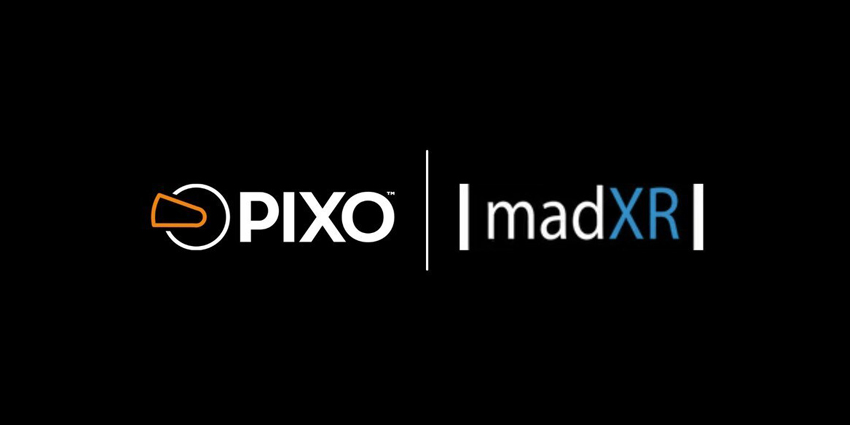The internet is now a ubiquitous technology. Just 7% of Americans report not using the internet, and 90% found it essential during the pandemic. In the UK, an even higher 94.8% of the population rely on internet connectivity.
So, when a company promises to build its next iteration – i.e., the embodied internet or the metaverse – it is sure to raise some vital questions.
How will this new internet experience called the metaverse change our lives? Will it impact businesses and how we work? And, most importantly, who is building this new internet that will connect over a billion users by 2031?
The answers to these questions are interesting and multi-faceted.
What Does it Mean to “Build the Metaverse?”
The metaverse is defined as a unified 3D virtual world where users can conglomerate via their digital selves (i.e., avatars) and perform complex interactions.
The metaverse was originally envisioned by science fiction writer Neal Stephenson as a metaphor of the real world, an embodiment of the internet, and an escape from reality.
The concept shot into prominence after Facebook’s mid-year earnings call in 2021 when it announced massive investments in building the metaverse.
Its rebrand as Meta followed soon after, and, almost simultaneously, tech heavyweights like Epic Games, Microsoft, Niantic, etc. decided to pour millions of dollars into this technology.
But what exactly does it mean to build the metaverse? Unlike most virtual reality apps, the metaverse isn’t a single software platform that can be built using your usual agile development model.
Rather, it is a complex digital environment that relies on seven distinct layers (suggested by Jon Radoff, author of Building the Metaverse blog):
- Infrastructure – Connectivity technologies like 5G, Wi-Fi, cloud, and hi-tech materials like GPUs.
- Human interface – VR headsets, AR glasses, haptics, and other technologies users will leverage to join the metaverse.
- Decentralisation – Blockchain, artificial intelligence, edge computing, and other tools of democratisation.
- Spatial computing – 3D visualisation and modelling frameworks
- Creator economy – An assortment of design tools, digital assets, and e-commerce establishments
- Discovery – The content engine driving engagement, including ads, social media, ratings, reviews, etc.
- Experiences – VR equivalents of digital apps for gaming, events, work, shopping, etc.
And here is the fun part: there are currently 160+ companies operating across these seven verticals and they are together building the metaverse.
Top Companies Building the Metaverse Right Now
When Facebook rebranded as Meta, the industry was eager to realign its investments and back whoever would build the future.
But the question is, who is building the metaverse?
How do you pin down ownership for what is essentially a decentralised and democratised concept? As Meta makes it clear in its statements, no single company will own the metaverse.
Multiple organisations, independent developers, and grassroot creators – along with the final piece of the puzzle that we will discuss later – will build the metaverse.
That said, there are a few companies already beginning to invest in this direction.
Epic Games
Epic Games, the company behind the popular immersive game Fortnite, was always perfectly poised to build the metaverse.
It formalised its intentions this year, announcing a $1 billion funding round to fuel growth opportunities for the metaverse.
Facebook (Meta)
Facebook has most of the seven infrastructural elements we discussed that go into building the metaverse.
Thanks to its Oculus range of headsets, massive social media ad engine, and a thriving creator economy, it could manage to launch a working prototype in 2-5 years.
Niantic
Niantic’s Pokémon Go was among the first immersive experiences to blur the lines between real and virtual.
Now, the company has raised $300 million to build its own metaverse, one that will be an alternative to the original notion of the metaverse as a “dystopian nightmare”.
Nvidia
While Nvidia isn’t directly building a metaverse of its own, it will be a key enabler.
In 2021, it announced Omniverse Enterprise where creators can collaborate on 3D modelling, design, and simulation. Omniverse combines 3D graphics with AI and supercomputing, laying the foundations of the metaverse.
Microsoft
Microsoft, meanwhile, is looking to build a work-focused metaverse that connects its hugely popular offerings in a digital environment called Mesh.
Inside Mesh, you’d be able to use Microsoft Teams, Windows, and other services in VR.
Decentraland
Decentraland was among the early movers who explicitly mentioned the metaverse as their core product.
Since its inception in 2017, Decentraland has steadily gained momentum – a piece of real estate inside its VR world recently sold for a record $2.4 million.
Apple
Apple could be a surprising dark horse in the race towards the metaverse. It is currently working on advanced VR gear that could revolutionise the metaverse experience.
Morgan Stanley went as far as to say that mass-market adoption of the metaverse hinges on Apple, much like smartphone and tablet markets before it.
Can Specific Territories Be Attributed with Building the Metaverse?
This is an important question as several experts have theorised that the metaverse could operate as an independent region, almost like a nation-state, with an economy and population of its own.
While most of the companies we discussed are based out of the US, EU, and UK, China is also making moves. The country has steadily gained an edge in building sophisticated AI and most of the VR manufacturing takes place in China.
It remains to be seen if the country’s technology giants like Tencent will act on their currently fledgling plans for building the metaverse.
The Central Part of the Metaverse Puzzle is YOU
This early flurry of activity leads to a singular conclusion: the secret to building a successful metaverse is user adoption, and eventually user-generated content from you.
Facebook’s meteoric rise is closely linked with the growth in user numbers, and the same is true for Microsoft, Decentraland, and others. And this probably presents the biggest hurdle of all.
It has been around three decades since the birth of the internet and we are yet to achieve 100% penetration for Web 2.0.
As the metaverse is built, stakeholders must focus on minimising adoption barriers and addressing user hesitance for it to be a success.







